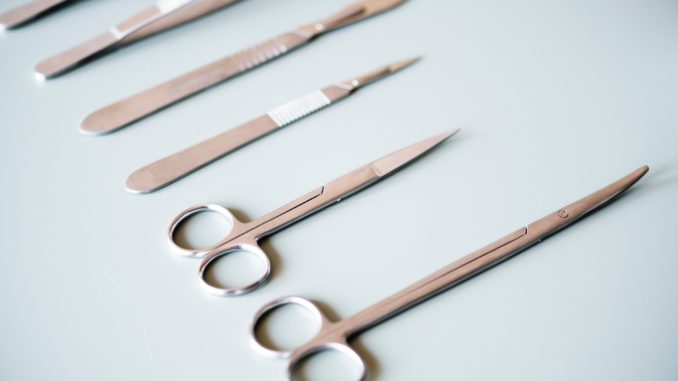
Dr Hilary Swales, lead for patient information at the Royal College of Anaesthetists, tells us about Fitter Better Sooner – a new patient information toolkit to help patients understand how they can best prepare for surgery and the impact a healthy body can have on their recovery
The life of a GP is a busy one – limited time to see patients, challenging medical conditions and, as with the rest of the health service, pressure on resources. However, there is much that patients can do to improve their own health when appropriately signposted and motivated.
Having an operation is a major event in a patient’s life and many will have had limited experience of hospital; for some, this can be a frightening experience. Clinicians need to focus on helping patients access the information they need about their surgery and recovery so that they can feel more in control.
From a GP’s perspective, anything that can improve recovery from surgery – reducing the number of visits in the short term, and improving longer term health – is good news.
To improve the transition from primary care to the surgical pathway in secondary care, the Royal College of Anaesthetists (RCoA) has developed ‘Fitter Better Sooner’ – a patient information toolkit that GPs can share with patients which will help them to better prepare for their operations. It is endorsed by both the Royal College of General Practitioners and the Royal College of Surgeons.
The Fitter Better Sooner toolkit consists of one main leaflet describing the toolkit, six specific leaflets covering some of the most common surgical procedures – including hernia repair and cataract surgery – and a helpful animation on how patients can prepare for hospital admission. The toolkit provides clear explanations and advice to lead the patient all the way through the surgical pathway – from referral, through pre-assessment, surgery itself and the recovery period at home. All of these resources are free to download from the RCoA website so that patients can view them in the comfort of their own homes.
Resources for healthcare professionals have also been produced to help signpost patients to the toolkit; these include posters, flyers and labels for patient notes. The animation can be downloaded as an MP4 file from the RCoA website and played on screens in GP surgery waiting areas.

Pre-habilitation for better outcomes
The wait between a patient being referred for surgery and the date the procedure takes place can be some time, often several months. This period offers a valuable opportunity for patients to prepare for surgery and make real changes to their lifestyles, health and activity during this time; evidence has shown that what a patient does in the time leading up to surgery can have a big impact on their recovery and long-term health.
In control
Patients who take an active role in planning and preparing for their operations can feel more in control, leave hospital sooner, experience fewer complications and recover more quickly. The fact is, we get in shape for fun runs and for holidays, but the idea of getting fit for an operation is not something most people would consider.
The toolkit contains information on diet and exercise, quitting/cutting down on smoking and reducing alcohol intake and gives advice on how to manage other existing medical conditions such as diabetes, anaemia and high blood pressure.
Fitter Better Sooner also explains that, while patients are waiting for their operation, they should try to increase their activity levels. Simple steps to increase exercise tolerance can often have a big impact on the speed of recovery – for instance, your heart and lungs have to work harder after an operation; if you are already active your body will be used to this and you will be better prepared for the surgery and the recovery afterwards.
Alongside the physical health advice the toolkit includes practical advice on other aspects of the surgery to consider, including suggestions as to what patients might need to take with them to hospital, what they might need to arrange at home in advance to help with their recovery and how friends and relatives can help – as well as looking at stress management and motivation during the recovery period.
With the toolkit to guide patients through the process, it is hoped that many more patients can return home after surgery fitter, better and sooner. We hope that practices will share the toolkit with patients and among themselves.
Don’t forget to follow us on Twitter, or connect with us on LinkedIn!

Be the first to comment